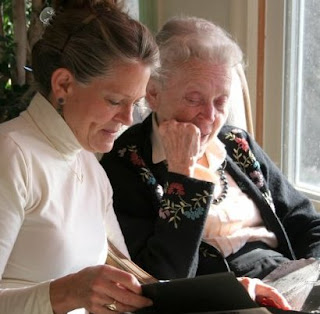The write way {An interview with Ann Voskamp}
Now adays many use blogs and blogging to get "discovered" but not so with author Ann Voskamp. Like me Voskamp was a journaler from girlhood who did what she did, "journal."
God used her journaling—her love for the scrawling of words to move souls.
I hope this interview that World Magazine did with Ann Voskamp will do what it is supposed to do!
Happy reading!
The write way
Author Ann Voskamp says reading, list making, and waiting on the Lord are integral to the creative process | Marvin Olasky

With all the homeschooling you do, the Patrick Henry students here would like to know when and where you write. My husband built a little 10-by-10-foot cabin on the edge of the cornfield, a very quiet, still space. I go out late at 9 or 9:30, after everyone has gone to bed, and early in the morning: All six of the kids get up at 5:30 in the morning and work two and a half to three hours in the barn with Darryl.
When writing One Thousand Gifts you would typically start at 9 p.m. and work until ... About 2 in the morning, and then I got four hours' sleep, and then I'd get some hours in the morning before they started school. It was an intense year. In the month of January, when the book was due, Darryl homeschooled all the kids, did the laundry, and made the meals. I'd come in and say, "I can't do this anymore." He would be, "The Lord has called us to this. We can keep going."
Very cold in January? Oh, yes, very cold. But he insulated that cabin very, very well.
Do you write on a computer? Yes. I've gone through a few lately.
Do you self-edit as you go along? Yeah, I'm not a fast writer at all. I come empty and wait upon the Lord. So it really is all a waiting process, a patient process. I write a chapter, then edit it and edit it and edit it and edit it. I don't think we mine creativity from within. It's bestowed from on high, from God.
As you were writing did you think about your audience? Honestly, I didn't think anyone would ever read One Thousand Gifts. It's quirky and idiosyncratic, and the language—it's not an easy read. But my husband and I both felt that the Lord had used it to change us. And what would show up on the screen would be things I didn't know of.
I don't really know what I think until I write. That is exactly it. I don't know what I think. I view writing lots of ways as a handicap. Other people can live their life and understand it. I have to write it to understand it. Or, I would begin to write a story and not know where it was going to go, and be surprised how the Lord was weaving everything to bring glory to Himself.
That famous line in Chariots of Fire from Eric Liddell: "As I run I feel God's pleasure." Yes, yes. Lots of nights I would run in from the cabin and wake up Darryl to say, "I thought it was about this, but look what the Lord gave us."
What do you do when you encounter what's called "writer's block?" When I do it's important to be reading—three or four different books at a time, so those books begin to have a conversation with each other. Then I begin to engage what that conversation is about, and words come out. If I don't have words, it's a sign I'm not reading enough. I read mostly nonfiction, classics, a lot of C.S. Lewis, contemporaries, John Piper ... a lot of theology because I'm trying to figure out how to make theology very practical, for the kitchen sink, for the moms with a lot of young babies.
Some readers of One Thousand Gifts have made their own lists. Do you recommend that? Yes. G.K. Chesterton says the greatest poetry comes out of lists. List making slows you down long enough to see, and writing comes out of attentiveness, out of the way you see the world, the way you see the sovereign hand of God moving. So the list doesn't seem like literature at all, but it is a practical way of opening your eyes up to your life and starting to notice the things otherwise you would have missed. So I think, while the list itself may not spawn any great thoughts, it will aid the practice of seeing.
When you slow down you pay attention to specific detail, the physicality of things? That all plays into writing. Really good writing, from my perspective, runs a lot like a visual on the screen. You need to create that kind of detail and have credibility with the reader, so the reader knows that you were really there, that you really experienced it, that you know the details. That comes out of seeing.
To read the interview in its entirety, please visit Marvin Olasky World Magazine interview with writer, blogger Ann Voskamp




Comments
Post a Comment
Hi, thanks for visiting :-)